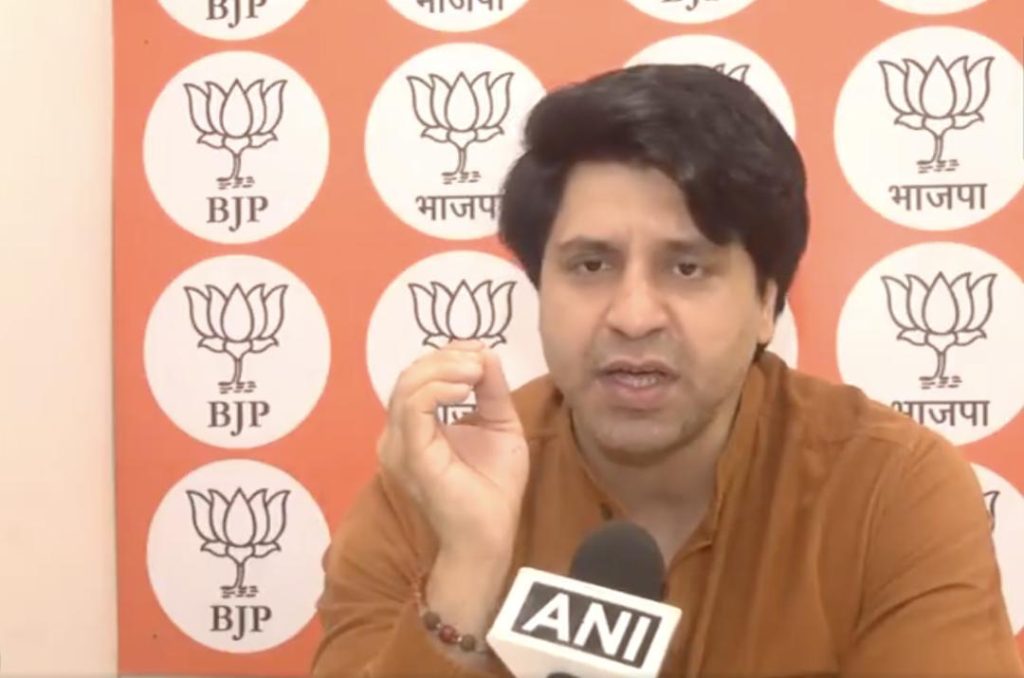
Will Stating Facts Lead to FIRs Now: BJP Reacts to Congress’s Case
In a recent turn of events, the Congress party has filed an FIR against the Karnataka unit of the Bharatiya Janata Party (BJP) for comparing Indira Gandhi to Adolf Hitler. The move has sparked a heated debate, with the BJP reacting strongly to the development. In a statement, BJP leader Shehzad Poonawalla questioned the motives behind the FIR, asking whether stating facts would now lead to criminal cases being filed.
As reported by ANI, Poonawalla said, “Now, will there be an FIR on stating facts? Should we call Indira Gandhi a saint for imprisoning the constitution?” He further added, “There are no FIRs on the people who call PM Modi Hitler and demean him each day.”
The FIR was filed by the Congress party’s Karnataka unit, which claimed that the BJP’s comparison of Indira Gandhi to Hitler was an attempt to belittle her legacy and tarnish her image. However, the BJP has maintained that the comparison was made in the context of Indira Gandhi’s Emergency era, during which she suspended civil liberties and imposed a state of emergency in the country.
The controversy has sparked a wider debate about the limits of free speech and the role of political parties in promoting or suppressing certain narratives. While the Congress party has accused the BJP of attempting to distort history, the BJP has argued that the truth about Indira Gandhi’s regime must be acknowledged and not sugarcoated.
In recent years, there has been a growing trend of political parties and individuals using legal action to silence their critics and opponents. The use of FIRs and other legal mechanisms to harass and intimidate political opponents has become a common phenomenon, with both the ruling and opposition parties engaging in this practice.
However, the recent FIR filed by the Congress party against the BJP has raised concerns about the erosion of democratic values and the suppression of dissenting voices. If political parties are allowed to use legal action to silence their critics, it could lead to a chilling effect on free speech and the ability of citizens to express their opinions and hold their leaders accountable.
The BJP’s reaction to the FIR has highlighted the need for a nuanced approach to dealing with controversies and criticisms. Rather than resorting to legal action, political parties should engage in constructive dialogue and debate, acknowledging and addressing the concerns and criticisms raised by their opponents.
In the context of the comparison between Indira Gandhi and Hitler, it is clear that the BJP was attempting to highlight the authoritarian tendencies of the Congress party’s past leaders. However, the Congress party’s reaction has been to dismiss the comparison as an attempt to tarnish Indira Gandhi’s legacy, rather than engaging with the substance of the criticism.
The controversy has also raised questions about the role of social media in shaping public opinion and influencing political discourse. The use of social media platforms to spread misinformation and propaganda has become a major challenge for democratic societies, and the recent controversy has highlighted the need for greater accountability and transparency online.
In conclusion, the FIR filed by the Congress party against the BJP has sparked a wider debate about the limits of free speech and the role of political parties in promoting or suppressing certain narratives. While the BJP’s comparison of Indira Gandhi to Hitler may have been controversial, the use of legal action to silence critics and opponents is a worrying trend that undermines democratic values and erodes public trust in political institutions.
As the controversy continues to unfold, it is essential that political parties engage in constructive dialogue and debate, rather than resorting to legal action or suppressing dissenting voices. By promoting a culture of transparency, accountability, and respect for dissenting opinions, we can ensure that our democratic institutions remain strong and resilient.






